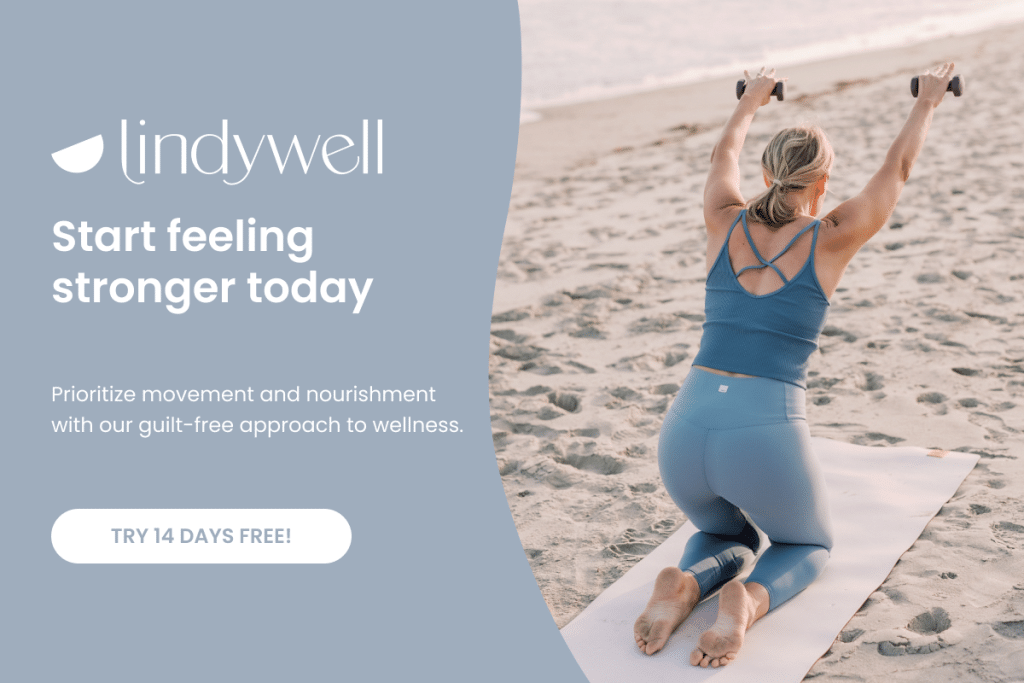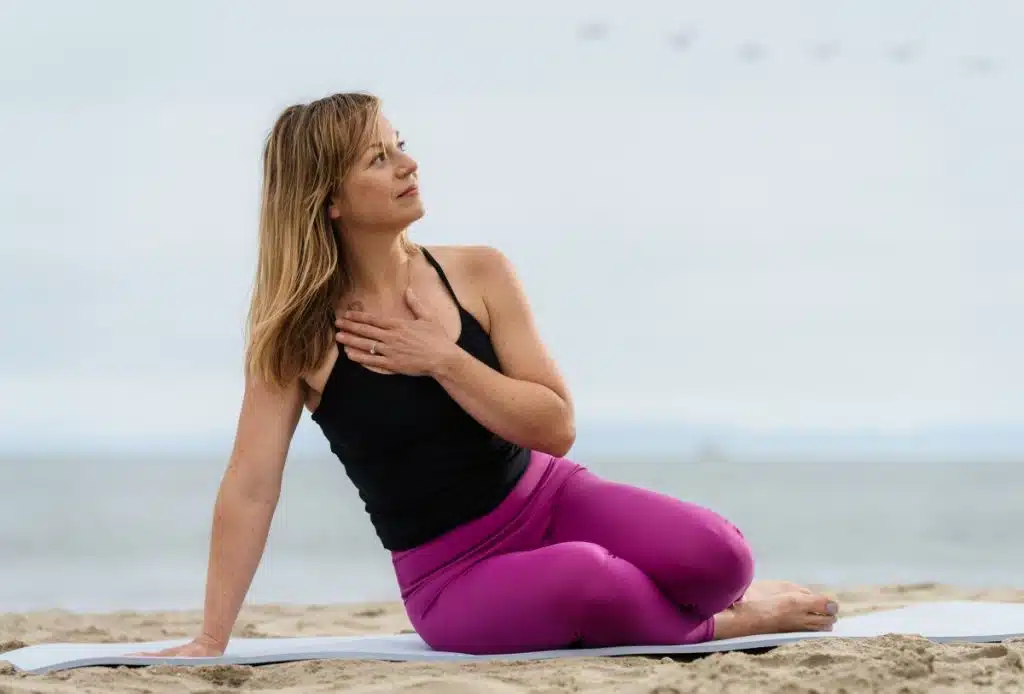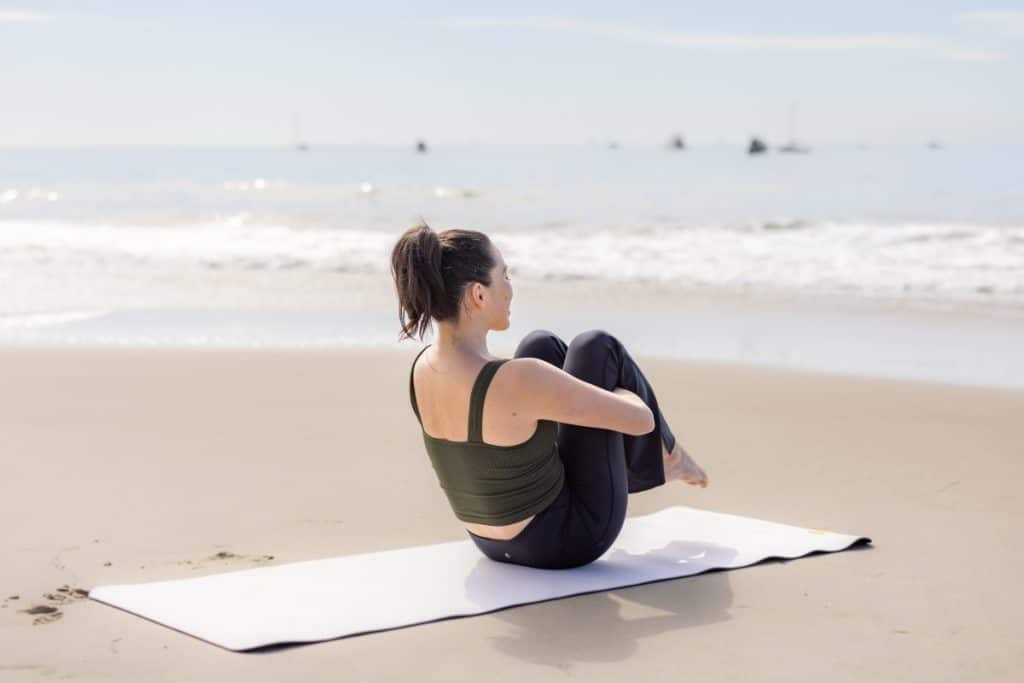
The importance of recovery days cannot be overlooked. In most health-focused conversations, people and experts are often quick to focus on cultivating habits around physical activity, movement, or nutrition. While both of these are important (very important!), there’s something that gets easily overlooked: rest days.
I was totally caught off guard when I got my health diagnosis a few years ago—lab results showed that my hormones were all out of whack. While the test results revealed that an auto-immune disease was not currently present, she told me that I had to make changes. Thankfully, there were steps I could take to improve my health, but it would take time, intentionality, and perhaps most important of all, rest.
For some of us, that wake-up call to rest comes as a diagnosis, like mine did. For others, it comes in letting go of the belief that rest is lazy or “unproductive.”
Perhaps you’re like me right now: operating in a state of disconnection from your body, receiving warning signs to slow down, but still powering through. The problem is, this is a clear route to burnout.
I get it. In our fast-paced, high-intensity lives, rest can become more of an afterthought than a priority. However, we need it for both physical and mental health. As a busy mom, business owner, and someone who prioritizes relationships and cup-filling activities, I know it can feel hard to slow down. Yet, it’s one of the best things we can do for minds and bodies at every age.
If you to experience, wholistic health results, you have to rest. Let’s talk about why rest days are so important, why burnout is so dangerous, and how you can rest into your routine in a way that feels fulfilling and supportive.

Without Rest, Burnout is Inevitable
Do you often feel like you’re in motion all the time? I get it, I feel that way sometimes too. The thing is, this puts you at risk for burnout. This state of physical, emotional, and mental exhaustion is a result of chronic stress or overwhelm—and women can be particularly vulnerable to the insidious impact of burnout.
In fact, women report higher stress levels than men, according to a recent survey from the American Psychological Association. What’s more, women are also more likely to feel that no one recognizes how stressed out they are, often leaving them to carry the burden alone. I hate hearing this!
While burnout might seem like one of those realities of being an adult, over time, burnout can take a serious toll on your well-being, including:
- Impaired memory or concentration
- Decrease in attention span
- Feeling unable to make decisions
- Low resilience or self-esteem
- Irritability, depression, or anxiety
- Chronic fatigue or insomnia
- Increase in substance use
- Gastrointestinal problems
- Headaches or musculoskeletal pain
- Compromised immune function
- Detachment or low motivation
- High blood cortisol levels
- General dissatisfaction with life
Although burnout is “considered” normal to some, the harmful effects of burnout don’t have to be your reality.” With rest and sleep built into your wellness routine, you can feel resilient, vibrant, and strong at every age—and still give yourself the slow-down you need.
The Power of Rest to Help You Combat Burnout
We live in a culture that glorifies constant productivity while minimizing the importance of rest. What’s easy to forget is that energy is a finite resource and the human body was not designed to function like a machine. Rest days nurture both your body and mind, providing essential muscle recovery and easing soreness while also offering your brain a much-needed pause to recharge and heal.
You will be more capable of handling a busy routine when you make it a habit to pause and refresh. But you don’t have to believe me. Let’s see what the science says!
Rest Stimulates Physical Recovery
Movement is an integral part of any wellness routine, but if you exercise without prioritizing rest, it’s much harder to sustain the health benefits you’re working toward. A lack of rest can deplete energy levels, increase stress hormones, and keep the body in a catabolic state (high blood pressure, heart rate, and respiration), which affects muscle repair and elevates injury risk.
On the other hand, resting after exercise promotes an anabolic state, which will help the body re-energize and the muscles recover from muscle soreness. The physical recovery benefits alone are a good enough reason to rest for me!
Rest Promotes Confidence
When you make time to unplug from distractions or obligations to enjoy a creative, restful form of leisure, this can do wonders for your mental health. A recent study in the British Journal of Psychiatry found that hobbies like reading for pleasure, listening to music, doing craft projects, or cultivating an at-home garden can lower depression and anxiety.
Slowing down and unplugging are also connected to things I know all of us want to experience, like higher self-esteem, mood state, resilience, empowerment, and life satisfaction! Even in the busiest seasons, intentional leisure is so valuable.
Rest Helps You Manage Stress
Stressful circumstances are part of life, but chronic stress can make you more susceptible to health issues like hypertension or coronary heart disease. This is why building restful practices, like finding inner peace and setting mindful intentions, into your routine is vital to creating resilience so you can manage the inevitable stress of life.
For example, research deep breathing techniques (6 slow diaphragmatic breaths for 30 seconds) can ease the body’s stress response, calm the autonomic nervous system, stabilize heart rate, and regulate intense emotions.
Rest Boosts Your Brain
Mental fatigue will often set in when you have to focus on a difficult task for long periods. This can also drain important mental skills, like alertness, concentration, reaction speed or accuracy, and flexible thinking.
If you feel maxed out after a strenuous day, mental fatigue could be the culprit. Letting your brain rest periodically (even just for 20 minutes at a time) can alleviate the emotional pressures of mental fatigue and stimulate your brain to work the way you need it to.
How to Make Rest Part of Your Routine
At Lindwell, we love the science, but we also love practical strategies! Even more, we know that it doesn’t need to be complicated to feel great, and the same goes for building rest into your routine. The whole point of rest is to create balance and ease in your life, not pile onto all the other activities competing for your attention. So, let’s focus on just two simple (and enjoyable!) ways you can make rest a priority for your mental, emotional, and physical well-being.
Schedule a Physical “Rest Day” Each Week
Typically, a physical rest day is a 12-hour period that you set aside to recover from an intense workout or other rigorous activities. The best way to do this is through active rest, which involves gentle movement to help promote blood flow, aid recovery and prevent stiffness and muscle soreness.
As a result, this type of active recovery day can support lean muscle growth, build strength, preserve bone density, increase endurance, and boost energy levels. Yes, please! To reap the benefits on your rest days, focus on activities that encourage mindfulness and gentle physical movement, like:
- Gentle full-body stretching
- Pilates (try our recovery classes!)
- Walks outside
- Gentle Yoga
- Breathwork sessions
- Somatic practices
Schedule Mental Rest With Self-Care Practices
You might think of a mental “rest day” as the opportunity for a Netflix marathon on the couch—but that’s not quite what I mean here (although sometimes we need those kinds of rest days too!)
What I’m talking about here is self-care, which refers to any restorative practice that nurtures a sense of inner peace, wellness, and balance. This type of sufficient rest is crucial not just as a counterbalance to your workout routine but as a foundational element of overall health. Plus, self-care also teaches you to cultivate healthy coping skills to reduce stress, which can lower the risk of both mental and physical illness. It seems like a no-brainer!
Similar to physical rest, schedule self-care into your calendar! Choose at least one day a week to take care of you, fully and completely. If you need some ideas to add to your list of daily practices, we have you covered with 25 Self-Care Sunday Ideas to Nurture Your Mind and Body.
Prioritize Rest to Feel Good, Mind and Body
If you’re looking for more effective ways to incorporate rest into your routine, join Lindywell with a 14-day free pilates trial! As a member, you’ll have access to gentle Pilates classes, restorative breathwork sessions, nourishing meal plans, and other self-care resources to help you carve out sustainable rest amid life’s hectic pace. Then if you’ve got your rest days down and are ready for more challenging movement, we have lots of strenuous workouts to choose from, including our strength-training series or Pilates advanced flow series. For additional insights and practical advice, we invite you to explore our related articles, designed to help you elevate your workout routine and overall wellness.










2 thoughts on “How to Ditch Burnout and Embrace Rest Days in Your Routine”
I really enjoy receiving this email on Sunday mornings. I have made reading it, slowly, with my tea part of my Sabbath practice.
Thank you for sending on a consistent basis. 😊
We love that you’ve made the Sunday Setup a part of your weekly routine! We are celebrating the way that you are taking the time for yourself to care for your health and wellbeing!